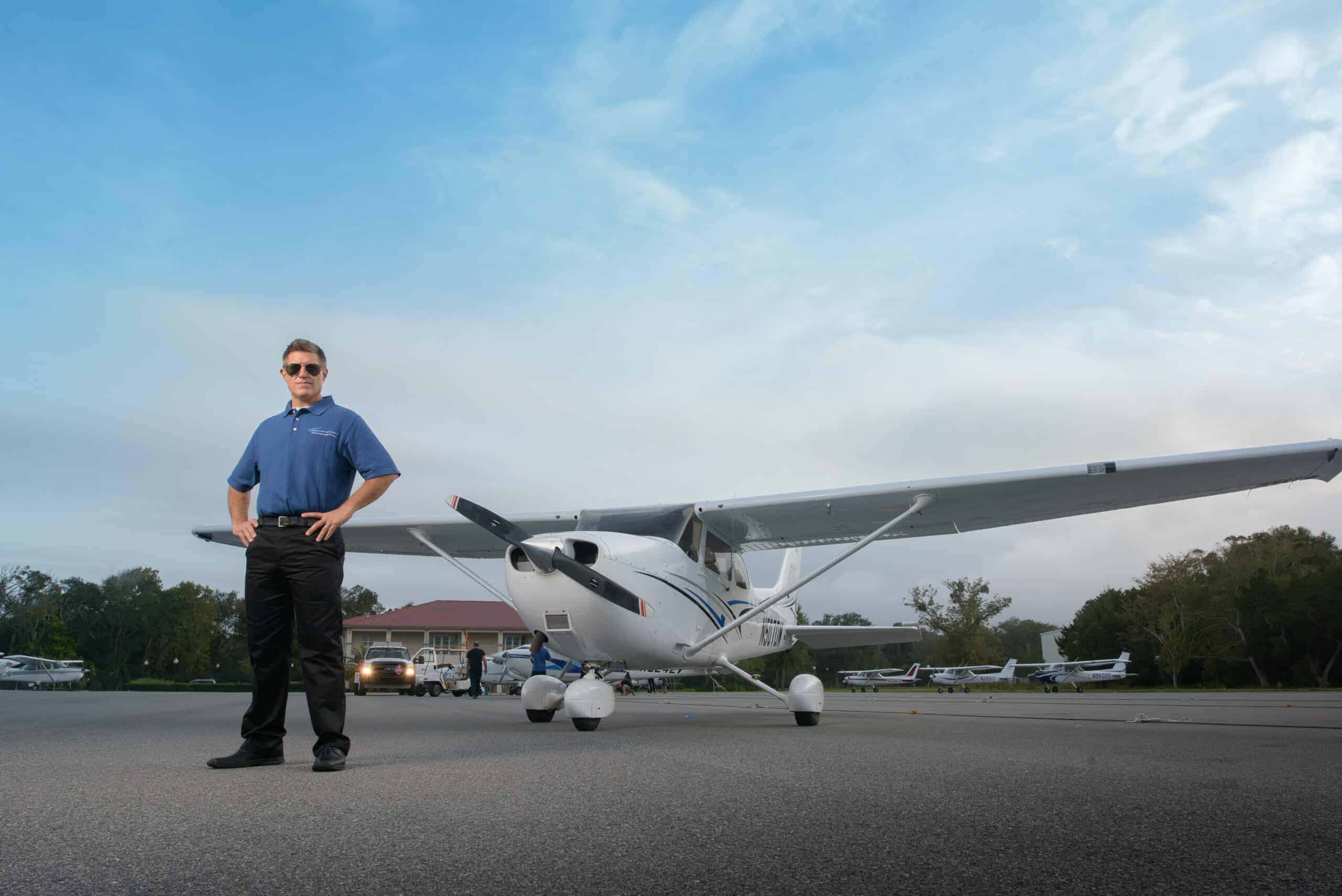For many, flying an airplane isn’t just a job it’s also a passion. The destination becomes more significant in the case of one of the most revered and most renowned cargo companies around the globe. A UPS pilot job involves more than just traveling from point A to point B. It’s about carrying sensitive cargo, ensuring security and efficiency in the face of pressure and playing an essential role in the heartbeat of international commerce.
We’ll take a closer look at the steps to becoming an UPS pilot. This includes the credentials you need, the training programs, as well as the actual job.

Image credit: flightschoolusa.com
UPS Pilots Are More Than Just Pilots.
Unlike commercial passenger pilots, UPS pilots are charged with carrying documents, packages and essential goods over international and national airspaces often with tight deadlines. The pilots are in an environment that’s rapid-paced and high-risk, from managing aircraft with valuable cargo to navigating complex weather systems. The UPS pilots symbolize professionalism in their work, as well as technical expertise and reliability.
UPS pilots have to be adept in everything from emergency procedures and pre-flight planning to communicating with the air traffic controllers on the ground. It’s a job that demands not just precision flying, but also sharp decision-making skills with sharp awareness of situations and a strong commitment to safety.
UPS Pilot Qualification Requirements: The Bar is High
UPS does not hand over the management of its fleet to anyone. UPS pilot qualification requirements are among the strictest in the cargo aviation industry and with good reason.
Candidates should hold a bachelor’s degree in aeronautics, aviation or another related field. They must also hold an active FAA Commercial Pilot’s license with both Multi-Engine and Instrument Ratings. The majority of UPS applicants have a minimum of 220 hours of experience and a maximum of 4,500 hours, and some of them have experience in turbine-powered aircraft.
Medical fitness is another important factor. Pilots must be in compliance with FAA health requirements. This includes excellent vision and the ability to pass comprehensive medical examinations. Applicants should also be U.S. citizens or have the appropriate authorization to work and fall within the required age bracket of between 23 and 65 years old.
UPS is a firm believer in real-world experience, technical knowledge, and professionalism. The qualifications are created so that UPS will continue to be recognized as a secure and efficient business while ensuring the safety of their pilots.
UPS Pilot Training: Be Prepared for the Real World
Even after meeting the qualifications, new hires undergo extensive UPS pilot training programs to prepare them for the unique demands of the company’s aircraft and routes.
Training begins with ground schools during which pilots study UPS-specific procedures, systems and company standards. This is followed by simulations that recreate real-world emergencies and flight conditions. After achieving proficiency in simulators Pilots are then able to start Initial Operating Experience (IOE) real flights under the supervision by the senior UPS pilots.
These programs are more than just technical. They prepare pilots for operational efficiency, crew coordination, and real-time problem-solving–critical components of UPS’s global delivery infrastructure.
How to become an UPS Pilot: Creating a Flight Path
If you’re interested in pursuing an UPS pilot position it is best to begin with a quality flight training. Schools like Florida Flyers Flight Academy provide an excellent foundation about navigation and aeronautics, and safety practices.
You can then enhance your flight hours on various aircrafts. You can make yourself better qualified for UPS by having experience in positions that emphasize safety, teamwork and time-sensitive operation.
Final Thoughts on a Career that offers more than Paychecks
Being a UPS Pilot is no easy task. It requires commitment to technical proficiency and the ability to perform under stress. If you’re willing to the task, this could be one of the most satisfying professions in aviation. It offers competitive pay and a chance to travel the world, job security and the chance to play an vital role in maintaining the world economy. The UPS cockpit could be the perfect seat if your dream is to fly with purpose.

